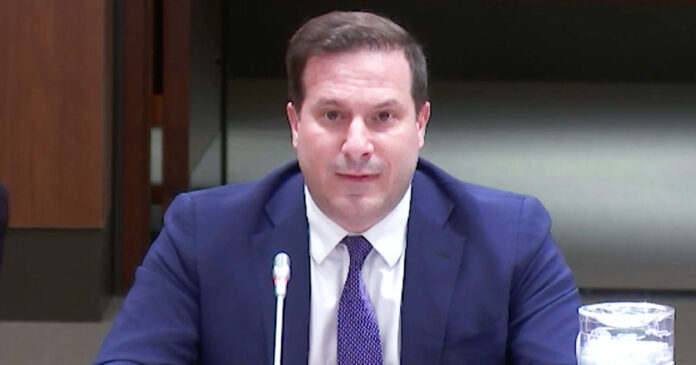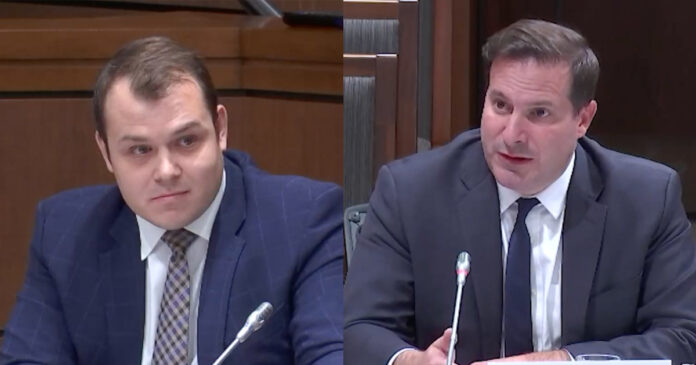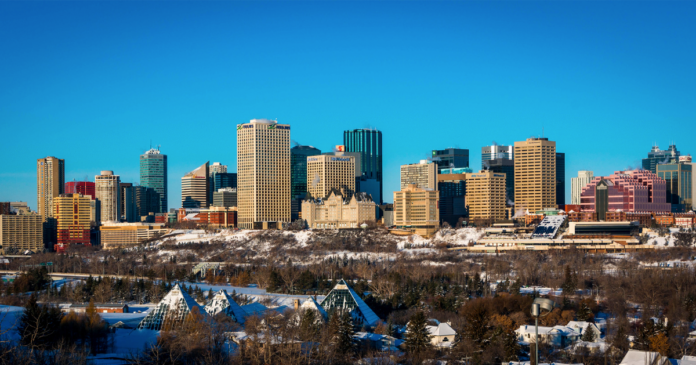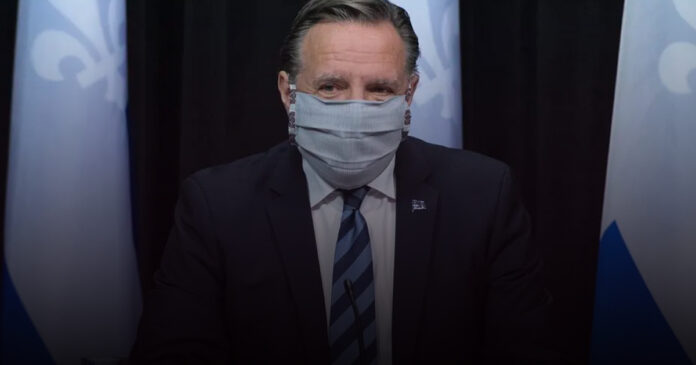The controversy-plagued ArriveCAN app caused billions worth of lost revenue for the Canadian tourism industry, parliamentarians heard on Tuesday.
As first reported by The Epoch Times, Mayor of Niagara Falls, Jim Diodati, gave a scathing testimony on the impact that ArriveCAN had on the tourism industry in the House of Commons Standing Committee on International trade.
“It’s been hugely impactful and devastating,” said Diodati.
According to Diodati, 20 million visitors come to the Niagara region each year, but due in part to ArriveCAN, tourism has fallen to half of pre-pandemic levels causing billions of dollars in losses.
“Typically 50% of the revenue that comes into Niagara Falls comes from U.S. visitors,” he said. “Americans typically stay longer and spend more. So the long-term effect of this requirement at the border has been devastating.”
Diodati said that most complaints he received about ArriveCAN came from seniors who felt they were being discriminated against.
“They were proud to show their passports, happy to show their vaccination status and boosters, but offended that they were being forced to do something they couldn’t do,” said Diodati. “They’re not as tech-savvy as younger kids, and a lot of them could not do the app because they didn’t have smartphones, they didn’t have computers.”
The Canada Border Services Agency (CBSA) has acknowledged that agents often had to help people use the app in order to cross the border into Canada.
“Then our CBSA border guards, instead of worrying about drugs and guns and criminals, become administrators, helping them to download the app,” Diodati said.
“The ArriveCAN app and the requirements of the ArriveCAN app had a massive effect, and we were seeing a drop of 50 percent and more of Americans coming into the country,” said Beth Potter, president of the Tourism Industry Association of Canada (TIAC).
“That’s $12 billion that didn’t come into the country because of travel requirements,” she added.
Even with the decreased number of visitors, mayor Diodati said land crossings were four times slower than usual.
“The app forces you to lie,” said Diodati. “It wants to know your quarantine address and day trippers that come to Niagara Falls don’t have an address because they’re going home the same day—so they have to lie and some of them were putting in the Peace Bridge address and you know these are law-abiding citizens—people that don’t want to lie, but they had no choice or not to come here, “ he said.
Two weeks ago, the Liberals announced that they would be dropping the Covid vaccine mandate at the border and that ArriveCAN would become optional. This came after months of calls from the Conservatives to scrap it due to major delays at airports and border crossings. ArriveCAN also delayed American rescue teams from entering Canada to provide aid to Nova Scotians after Hurricane Fiona.
Last month, officials with the Customs and Immigration Union told the House of Commons trade committee that things got so bad for some travellers that they defecated themselves while waiting to cross the border.
The Justice Centre for Constitutional Reforms (JCCF) announced in September that it would continue legal action on behalf of 11 people against ArriveCan – with the hope of having a court rule that the requirement to use the app was unconstitutional.


























